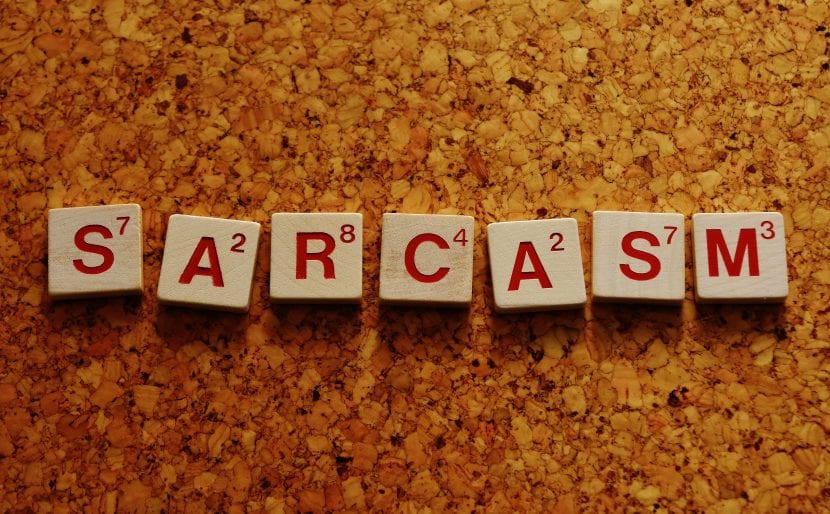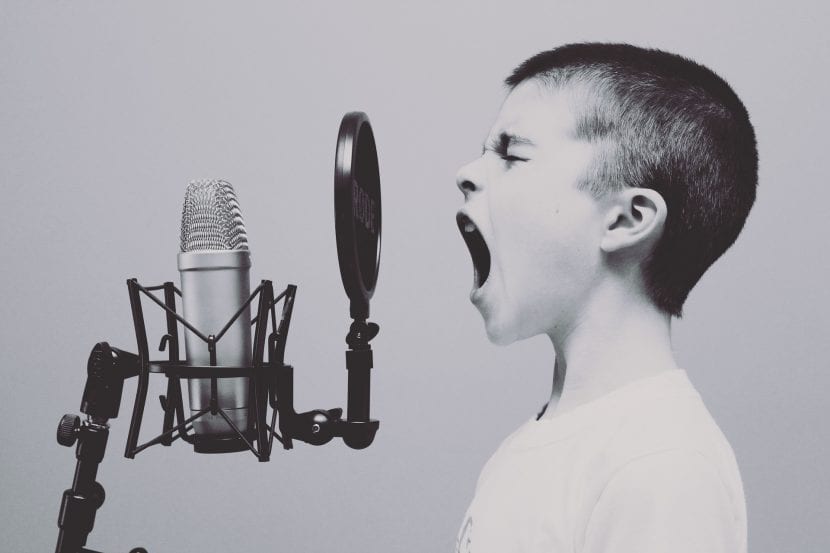
Has a phrase ever hurt you? Have they said something sarcasm to you and have you felt offended?Well, perhaps that's where our head sensibly detects these kinds of words and makes us feel bad. When we are adults we can receive this fact with bitterness and therefore the act of issuing it we can execute it in the same way, sarcastically.
But what about children? Talking sarcasm to other children may turn out to be a real thing, a kind of imitation or an act that is being performed with all the consequences. Un sarcasm is to make a comment that hurts and offends, it may seem like a heavy mockery, a malicious irony, therefore the words mistreat and their form can unleash a cruel deed.
We should not confuse it with the irony since its expression can imply something contrary to what it is really intended to express, in this case the mockery is disguised. Also within sarcasm we find all these concepts: irony, mockery, contempt, sneer, taunt, sharpness.

Can children use sarcasm?
Surely if they are able to know how to use sarcasm, but it would be necessary to analyze the ages and their psychology. The way of interacting verbally between some children and others with mental and pragmatic ability is an act that develops little by little over the years. That from 5 years approximately when they are able to act using lies, ironies and jokes. It is not something specific, because the psychology developed to fruition in each child can be unusual.
Are they able to understand this type of behavior?
It will depend on the innocence of the child and the age but from this point of view it is more or less common that those who do not understand sarcasm usually as such, is considered an innocent mind, with little malice and without having the necessary experience to detect it. Therefore it may be a proven fact that children do not appear to be able to understand or form a comment on their own with this intention.
Given the case and as parents seeing children interact in this way, we can follow some guidelines that can be governed as a daily job to be done so that they do not act in such a way:
- Between them we can explain to them that some phrases, shapes and words can turn into sarcasm and ironies and that they can turn out to be hurtful for other people, so you have to be adequate in how to say them.
- They have to learn to recognize when words are meant with bad intent because they can transform it into an irony with humor.
- It should be added that another of the works is the idea that the use of lies is not correct and especially of the white lies.

But another of the many works we find within the psychology of parents. Many times without realizing it, the fact that they make use of it is because they really find it in the way we interact with them. For this we must look at ourselves critically and analyze our actions. If you think that you are the bearer of using sarcasm habitually in your social environment and especially with your children, you should know that this fact interacts in their psychology without realizing it and the cases can be:
- You can hurt their feelings: When you use it, the real message you transmit is negative, and depending on the phrase you use, you can hurt it, famous phrases such as: “Are you stupid or what? When its correct form would have been: "I hope you understand me."
- You will use phrases with disrespect where later they will use them too. An example: "How ugly you are" when you wanted to say "you are beautiful"; This way you will use it with your environment, it may complicate your communication.
- This will eventually cause your children to drift away: using irony will disguise your true feelings. In this sense, the child will doubt how he has to express himself and will be taught to lie with humor. In fact, you will learn to have little empathy with parents.
- It can create insecurity: especially if your face and your gestures do not reflect what you really mean. At this point the child, especially if he is very young, may not understand your message and misinterpret it. You will surely feel confused and you will not know if it is a joke or you are really doing something wrong.
- Destroy empathy and will make stand above him: It is not a good act to start a dialogue, especially if we want our children to learn something.